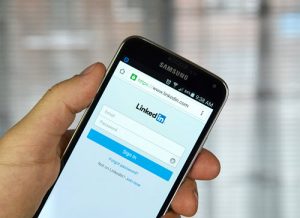Ready for that Phone Interview?
Let’s get rid of the jitters by understanding what you might face. To be sure, interviewing, in fact, hiring practices for finding and selecting candidates have changed.
Keep in mind that the challenge for human relations professionals, recruiters, hiring managers and their assistants is to hire the best candidate for the open position by screening out people that don’t seem to fit the required criteria. Hiring an employee is a significant investment for a company. It’s not personal.
You can expect that once your resume or online application has piqued some interest, the process begins and may include any or a combination of the following:
- Telephone interview set up by appointment – first level screening
- Video interview with a person or recorded session of programmed questions
- In-person initial interview – first level screening with administrative support person
- In-person interview concluding with an invitation to meet with another interviewer
- In-person interview with a panel of interviewers
- In-person interview with a decision maker or hiring manager
- Invitation to shadow someone in the proposed position with no commitment to hire
The possibilities go on until you get notified of a decision. Let’s get you ready for that phone interview.
Preparation
Try your best to be relaxed. Interviewers may start with a casual conversation about the weather, schools you attended, your passion for the skillset, favorite vacation destinations, etc. Let them bring up topics. Take a deep breath.
Do your homework. Investigate the company. Go beyond their website. Find out what is going on in the industry – new trends – major problems facing the company – their competition. It helps to be able to have an intelligent conversation focused on the industry.
Practice. Find some sample interview questions. Ask a friend or spouse to ask random sample questions. Record your practice answers and review them. Talk to a career coach about conducting a mock interview. Put yourself mentally in the position of the interviewer and consider their perspective of your answers.
During the Telephone Interview
Treat this with the seriousness of a real interview; it is not a chat. Create a conducive environment by finding a quiet place with a reliable phone line (cell phones are often not clear, or the call could drop – use a landline if possible).
Get your submitted resume in front of you. The interviewer will have a copy to guide the discussion. Be ready to explain your work history. Make some notes about the contributions or improvements you added while in positions. It would be great if you had a “story” about what was going on when you arrived and how you made a positive difference. Above all, try to use some quantifiable terms, e.g., improved production by xx% or hired xxx new employees or served xxx customers during peak hours, etc.
Be ready to explain why you are seeking a different position and why you are interested in their company. Talk about how you could contribute to the quality and productivity of their mission.
Sit up straight to help project your voice. Have a glass of water handy, in case your mouth gets dry. Interviewing can be nerve-wracking.
Take time to briefly pause before you answer questions – get your thoughts together. Use this time to repeat the question back assuring you understand the question.
Remember the interviewer cannot see you, which means you must project your personality and enthusiasm through the phone. Smile often. Have notes and examples of your attributes and characteristics. Don’t read them, simply jot down a word or two to remind yourself to mention them. Have a short story ready about how you exhibit those attributes.
Lastly, visualize your interview as going off without a hitch because you are prepared, composed, and able to present your best professional self.
Still a bit nervous about the call? Contact me to see how I can help you prepare for a phone interview.
Good luck!
Related Posts

Unemployed?

Strategies for Job Searching Online and Networking





